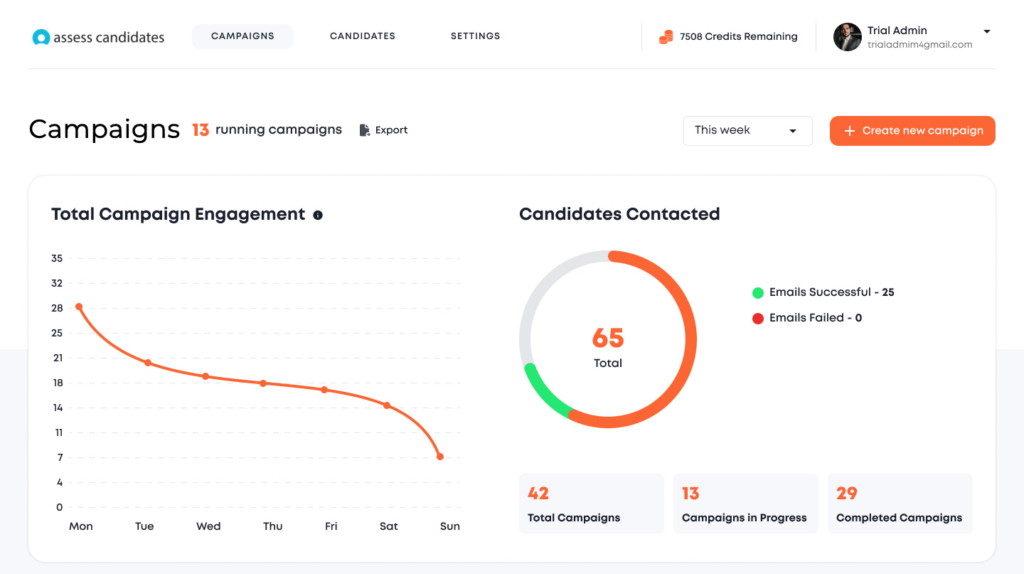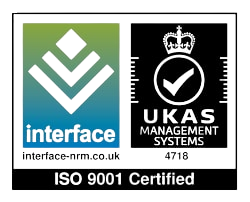How to reduce Bias when administering pre-employment assessment tests
The pursuit of fairness and diversity in recruitment has become a must for all organizations. The process of selecting the right candidates for a job has traditionally been fraught with biases, inadvertently excluding talented individuals from underrepresented groups. Where does your company stand in this?
Recently, aptitude test assessments have emerged as tools to ensure fairness and inclusivity in recruitment. The mechanics behind the pre-employment assessments ensure a standardized, objective, and scientifically validated means of evaluating candidates – measuring a candidate’s skills, abilities and potential without favoring one demographic over another. This article is a must read for all recruiters and HR professionals.
Contents:
- What is selection bias in recruitment?
- How do successful assessments reduce the recruitment bias?
- Examples of companies using recruitment assessments for fairness in talent selection.
- What are some typical pre-employment candidate assessments?
- What are the benefits and risks of using pre-employment assessments?
- Why Assess Candidates is your best partner for fair and inclusive hiring?
- FAQs and Glossary of Terms
1. What is selection bias in recruitment?
Selection bias in recruitment is a challenge that affects the fairness and effectiveness of the hiring process. It occurs when the selection criteria or methods used to evaluate candidates inadvertently favor certain groups while disadvantaging others.
Where does selection bias occur?
This bias can stem from various sources, including:
- the design of job postings
- the composition of interview panels
- the criteria used to shortlist applicants.
What are the different types of selection biases?
| Implicit bias | Refers to unconscious prejudices or stereotypes that influence decision-makers. |
| Confirmation bias | Where interviewers tend to seek information that confirms their initial impressions about a candidate. |
| Affinity Bias | When hiring decisions are influenced by a personal connection or similarity to the candidate. |
Other types of biases might include affect heuristics (using short-cuts to reach the decision), horn effect (when one negative factor blocks general evaluation), beauty bias or conformity (following judgment of other decision-makers)
2. How do successful assessments reduce the recruitment bias?
Having understood what bias in recruitment is, it is key to understand how you as a recruiter can successfully implement new hiring strategies to reduce bias in your future recruitment campaigns. How can companies use assessments for a fairer recruitment process?
5 steps to successfully reduce recruitment bias.
- Objective Criteria: By using standardized assessments with clearly defined criteria, your hiring team can evaluate candidates based on merit rather than personal biases. This ensures that all candidates are judged against the same set of qualifications.
- Structured Interviews: Structured interviews with predetermined questions and evaluation criteria help your interviewing team remain focused on relevant job-related factors, minimizing the influence of biases.
- Blind Recruitment: Consider implementing blind recruitment processes where candidate information like name, gender, or ethnicity is concealed during the initial screening to prevent unconscious biases.
- Diverse Interview Panels: Including a diverse group of interviewers can help counteract biases and provide different perspectives on candidates.
- Data-Driven Analysis: Your team should regularly analyze recruitment data for disparities and adjust assessment processes accordingly can help identify and address any bias issues.

Recognising and actively combating selection bias is a crucial step toward creating a more equitable and effective hiring process.
Ensure fair and equal hiring with Assess Candidates. Hire For Free
3. Examples of companies using recruitment assessments for fairness in talent selection.
Now let us look at how In today’s competitive job market, many large, but also medium-sized, forward-thinking companies are turning to recruitment assessments to ensure fairness and objectivity in their candidate assessment processes. By relying on objective evaluations of candidates’ skills and competencies, these companies are not only reducing bias but also enhancing their ability to identify and retain top talent for their organizations. Take a look at a few examples below.
“75% of the Times top 100 companies use psychometric testing as part of their recruitment process”
The Independent
Which companies have successfully re-designed their assessments to ensure fairness in the candidate selection process?
- Google: Known for its innovative approach to talent acquisition, Google employs structured interviews and coding tests to assess technical skills, focusing on standardized questions that reduce bias.
- Unilever: Unilever employs Game-based Assessments and immersive situational judgement tests to evaluate candidates’ cultural fit and values alignment, identifying candidates who are not only qualified but also a good match for their inclusive company culture.
- PwC: PricewaterhouseCoopers (PwC) utilizes the PwC Professional framework to assess candidates’ abilities in critical areas like leadership, teamwork, and problem-solving, ensuring that candidates are evaluated consistently based on defined competencies.
- IBM: IBM employs data-driven assessment tools that analyze candidates’ responses to open-ended questions and assess their cognitive abilities, identifying potential talent based on merit rather than subjective judgments.
4. What are the most common types of pre-employment assessments used to reduce bias in recruitment?
We have seen how some of the leading companies have changed their recruitment practices with an aim to create a more inclusive and diverse workforce. Developing a bias-free recruitment processes will depend upon the choice of pre-employment assessment tools you choose.
What are the best types of candidate assessments to use for fair evaluations?
The most commonly used pre-employment assessments:
- Structured Interviews: These involve predetermined, standardized questions and evaluation criteria. Structured interviews reduce bias by ensuring consistency across all candidates. These can take the form of telephone, in-person or video interviews.
- Skills Tests: Employers use skill-specific tests, such as coding assessments, language or checking tests to objectively measure a candidate’s qualifications for a specific role.
- Situational Judgment Tests: SJTs present candidates with job-related scenarios, assessing their decision-making and problem-solving abilities in real-world contexts, thus reducing subjectivity.
- Personality Assessments: Toolslike the Big Five personality traits help employers assess candidates’ personality traits, enhancing cultural fit evaluations.
- Cognitive Ability Tests: These standardized assessments measure a candidate’s cognitive abilities, such as logical reasoning, critical thinking, and problem-solving, providing an objective view of their potential.
- Game Assessments: Increasingly popular, game assessments offer interactive challenges that assess various skills and competencies while engaging candidates in an enjoyable way.
Assessment Centre Exercises:
Candidates complete tasks or projects similar to those they would perform on the job, demonstrating their practical skills and abilities.
Hire top talent with bias-free candidate assessments. View Plans
5. What are the benefits and risks of using pre-employment candidate assessments?
After seeing the types of pre-employment assessments that can be used, let us now look at both benefits and risks to using these recruitment strategies for a company like yours.
5 Benefits of using candidate pre-employment assessments in hiring:
- Objective Evaluation: Recruitment assessments provide an objective way to evaluate candidates’ skills and qualifications, reducing the influence of bias in hiring decisions.
- Enhanced Predictive Validity: Well-designed assessments can accurately predict a candidate’s job performance, leading to better hires and reduced turnover.
- Time and Cost Savings: Automated assessments can streamline the screening process, saving time and resources in the long run.
56% of recruiters said they can’t make good hires because of lengthy hiring procedures.
Recruiter & Employer Sentiment Survey MRI Network
- Consistency: Structured assessments ensure a consistent evaluation process for all candidates, promoting fairness.
- Improved Quality of Talent Hired: Assessments help identify candidates who are the best fit for the role and the organization’s culture, leading to higher-quality hires.
Organizations with diverse management have 19% higher revenue when compared to those who have below-average leadership diversity.
BCG

5 Risks of using pre-employment assessments
- Bias in Assessment Design: If assessments are not carefullydesigned and validated, they can introduce their own biases.
- Solution: Hire using tools that were previously designed and evaluated by psychometricians.
- Over Reliance on Assessments: Depending solely on assessments can lead to overlooking important soft skills and cultural fit.
- Solution: Combine pre-employment assessments with other evaluation methods, such as in-person interviews with a final group of pre-selected candidates.
93% of employers consider soft skills an “essential” or “very important” factor in hiring decisions.
Wonderlic
- Candidate Experience: Poorly designed or overly lengthy assessments can create a negative candidate experience, potentially deterring top talent.
- Solution: Hire using an automated assessment platform that ensures a smooth and positive candidate experience journey. The assessments should not only be bias-free, but also engage candidates with the user interface.
Nearly 4 in 5 candidates (78%) say the overall candidate experience they receive is an indicator of how a company values its people.
- Resource Intensity: Developing and implementing assessments requires time and resources, which may not be feasible for all organizations.
- Solution: Partner with an industry leading provider of candidate assessment tools.
- Score Interpretation: Misinterpretation of assessment scores by hiring teams can result in misguided decisions, leading to the selection of candidates who may not be the best fit for the role.
- Solution: Provide comprehensive training for hiring teams on how to interpret assessment scores accurately. Additionally, utilize clear and intuitive score reports that offer detailed insights into candidate performance, helping hiring professionals make informed decisions based on a thorough understanding of the assessment results.

6. Why Assess Candidates is your best partner for bias-free hiring?
Assess Candidates offers a comprehensive solution for organizations seeking to enhance their candidate selection process by actively tackling the issue of human bias. Our platform combines cutting-edge assessments with robust analytics, ensuring objective evaluations and data-driven decision-making to ensure your recruitment process is free from bias and discrimination.
How can Assess Candidates help you reduce bias in your hiring?:
- Automation for Reduction of Manual Tasks and Human Errors: Streamline your recruitment process with automated assessments, significantly reducing manual tasks and the potential for human errors. This not only enhances efficiency but also contributes to a more objective and unbiased evaluation of candidates.
- Expert Support from Experienced Occupational Psychologists: Collaborate with our team of experienced occupational psychologists who specialize in creating bias-free strategies for recruitment. Benefit from their guidance and customization to ensure that your hiring process is not only efficient but also built on sound, unbiased principles. Our experts work closely with your company to implement strategies that promote fairness and equity throughout the recruitment journey.
- Diverse Assessment Options: Access a comprehensive array of assessment types tailored to diverse job roles and industries, fostering a fair and inclusive evaluation process. By offering a wide range of options, we contribute to the elimination of bias in candidate assessments.
Choose Assess Candidates to elevate your recruitment strategy and make informed, unbiased hiring decisions that lead to the best talent for your organization.

Practical example of Assess Candidates enhancing diversity in your company’s hiring process.
Problem
Your team has received specific diversity and inclusion training and guidance, however your hiring managers believe the way candidates are selected might still be biased.
Assess Candidates Solution
With an automated assessment platform, we will ensure that each candidate receives an equal assessment process without discriminating for any demographic information contained in their application. Our assessment tests are designed with the highest scientific rigor, based on decades of research and industry expertise. The tests are fully validated and standardized. Our technology is designed for enhanced accessibility and candidate journey that does not discriminate.
7. FAQs and Glossary of Terms
FAQ
- What is selection bias in recruitment?
- Selection bias in recruitment refers to the unfair advantage or disadvantage that certain candidates may experience during the hiring process due to their demographic characteristics (e.g., gender, race, age) rather than their qualifications or abilities. It occurs when subjective judgments or biases influence candidate selection, leading to the exclusion of talented individuals from underrepresented groups.
- What is the primary benefit of using recruitment assessments to reduce bias?
- Recruitment assessments provide an objective and standardized way to evaluate candidates. This results in a fairer and more equitable hiring process, where candidates are assessed based on their skills, competencies, and potential rather than subjective judgments.
- How can I ensure that the assessments I choose are bias-free?
- Work with reputable providers who have thoroughly validated their assessments for fairness. Look for assessments that have been tested for adverse impact and consult with experts in industrial-organizational psychology if needed. Regularly review and update your assessments to address any emerging biases.
- Are recruitment assessments suitable for all types of roles and industries?
- Yes, recruitment assessments can be adapted to suit various job roles and industries. While some assessments are tailored for specific professions, others assess general competencies applicable to a wide range of positions.
- What are examples of companies using recruitment assessments for fairness in talent selection.
- Many leading companies have adopted recruitment assessments to enhance fairness and diversity in their talent selection processes. For instance, organizations like Google, Microsoft, and IBM use various assessment tools to evaluate candidates objectively and reduce bias in their hiring decisions. These assessments help these companies identify and select the best-fit candidates based on their qualifications, skills, and potential, regardless of their demographic backgrounds.
- What are the risks and costs associated with using recruitment assessments?
- The risks and costs associated with using recruitment assessments include the potential for introducing biases, the need for careful validation and ongoing monitoring, and concerns about candidates’ experience and fairness. Additionally, there may be expenses related to developing, administering, and scoring assessments, as well as the time and resources required to train staff in their use. Organizations should carefully consider these factors when implementing assessments to ensure they effectively promote fairness and diversity in recruitment.
Glossary of Terms:
- Aptitude Assessments: Tests measuring individuals’ natural abilities and potential for specific tasks or skills.
- Recruitment Bias: Unfair preferences or discrimination during hiring based on personal characteristics or stereotypes.
- Inclusive Workforce: A diverse team that values and welcomes individuals of all backgrounds and identities.
- Retention of Talent: Strategies to keep skilled employees engaged and motivated to stay with the organization.
